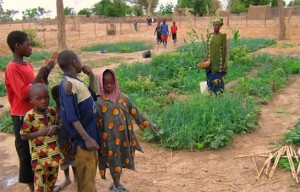We received a stirring testimonial from our friend and colleague Greg Flatt in Massachusetts, who recently contacted us to congratulate us on our efforts and offer encouragement. Greg and his wife Cindy founded ECOVA Mali five years ago to help Malian villagers and promote food security and rural development.
As a former Peace Corps Volunteer who served in rural Mali in the late 1990s, I have distinct memories of being helped out personally, or being able to help out others by poring through the pages of “Where There Is No
Doctor.” It helped me to understand various symptoms and ailments and their probable causes. Importantly, it also tells you how serious or urgent a condition might be, and what kind of treatment(s) might be useful or necessary.
I have maintained close ties with Mali and have been back many times in numerous capacities. I am always struck by the profound power that literacy holds—a power that is inaccessible to most Malians. Fortunately, Mali has made significant headway in implementing an educational policy that prioritizes local language literacy as a component of primary education. Since most Malians don’t go to school beyond primary school (and, sadly, many don’t get a chance to go at all), any useful educational material that can be made available in local languages can have a profound impact, especially when dealing with issues of health and nutrition, and illness prevention and treatment.
An additional benefit of the “Where There Is No Doctor” is the abundant use of illustration. Truly, a picture is worth a thousand words. I fully support the publication of this valuable book in Bamanankan (Bambara), and praise the Dokotoro Project’s efforts to bring it into reality. It has the very real potential to positively impact vast numbers of Malians. The majority of Malians who live on the margins of medical access will benefit from the publication of this book in their local language. So to will those who live in larger towns and cities, many of whom do not know enough about various health conditions to adequately triage life-threatening situations and take advantage of what medical resources are available to them.

